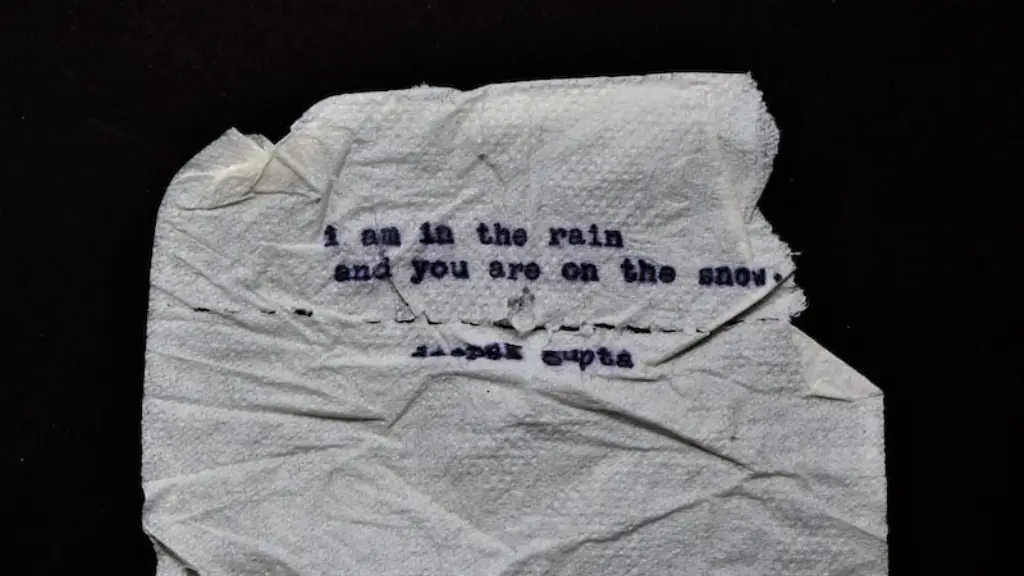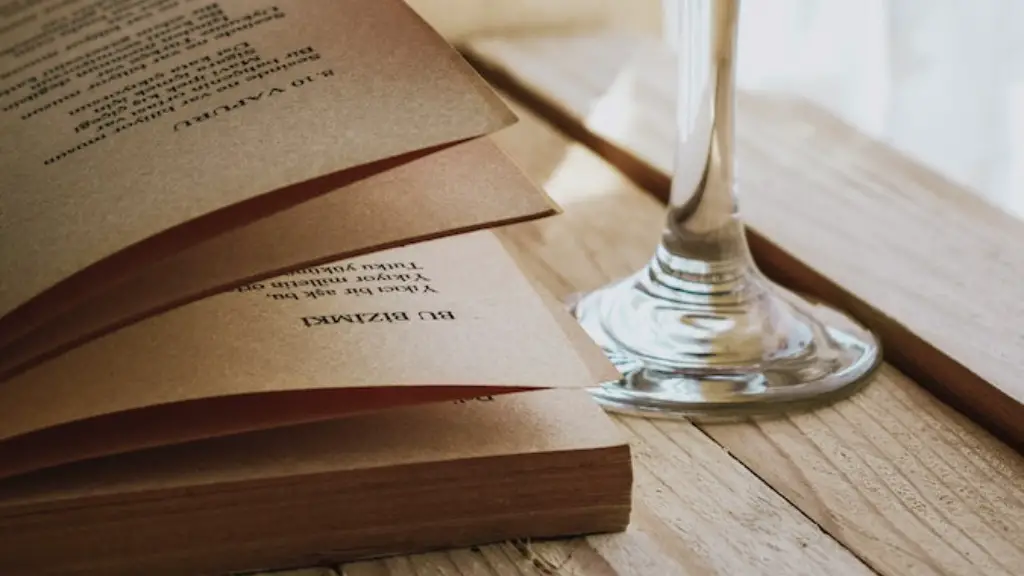Basic Rules of Poetry Writing
Creating poetry is not just a skill, but also an art form. Writing poetry requires an understanding of both technique and structure, as well as an appreciation of the aesthetics of words and language. Writing a poem can be an incredibly rewarding experience, but it can also be intimidating for those who have never written one before. In this article, we will explore some of the basic rules of poetry writing, to help you get started on your journey.
Consider Your Subject Matter
One of the first steps of writing a poem is to consider what your subject matter will be. This can include anything from nature, to love, to abstract concepts, like loneliness or peace. Take a few moments to think about what you want to write about and then begin to brainstorm possible ideas. Additionally, if you are writing about a particular theme or idea, take some time to research it and familiarize yourself with any related concepts or terms.
Select an Appropriate Form
Once you have an idea of what you would like to write, you will need to choose an appropriate form or structure. Common forms include haikus, sonnets, and free verse. Each form has specific structural rules that should be adhered to, so it is important to consider which form would best suit your chosen subject matter.
Create a Metaphor
Metaphors are very powerful in poem writing as they can convey a range of emotions and ideas in an incredibly effective and efficient way. Think of a metaphor that would relate to your chosen subject matter, and use it to craft the body of your poem around it. This will help strengthen your poem, while also allowing you to create a unique piece of work that speaks to the readers.
Avoid Structural Clichés
When writing a poem, it can be easy to fall into the trap of using structural clichés. This includes using repetitive language and topics, or relying heavily on alliteration and assonance. It is important to keep in mind that a poem should be creative, and refrain from using too many common devices in order to prevent your poem from appearing formulaic or dull.
Edit Your Work
Once you have completed a rough draft of your poem, it is important to take some time to edit it before you finalize the piece. This can include proofreading for any errors in grammar and spelling, ensuring that the syntax flows coherently, and generally tweaking lines in order to convey a certain sentiment or invoke an emotion.
Publish Your Poem
Once you have finished editing your poem, it is time to send it off to be published. Many writers choose to self-publish their work, while others opt to submit it to competitions or literary journals. Whichever route you decide to take, make sure that you follow all of the submission guidelines closely, to give yourself the best chance of success.
Experiment with Different Poetry Techniques
From internal rhyme to enjambment and metre, there are so many techniques used in poem writing. While the basic rules of poetry still apply, each technique can add a unique layer to your work, depending on how you choose to use it. Take some time to play around with different techniques, and consider how each one might affected the overall feel of your poem.
Find Inspiration
Finally, it is important to be open to inspiration, as sometimes the best poems come from unexpected sources. Take some time to read the work of other authors and see what ideas they are exploring or techniques they are using. From movies and books to photographs and conversations, inspiration for your poetry might come from the most unlikely places.
Write with a Purpose
When beginning a poem, it is important to have a clear understanding of your own intent and purpose. Know why you are writing, and set a goal for the poem before you begin your work. Perhaps you are trying to piece together an experience or express a certain emotion—whatever your purpose is, understanding it can help get the creative juices flowing and allow you to focus on the task at hand.
Exploring Different Literary Devices
When considering how to write poetry in a paper, it is important to take the time to explore different literary devices. These devices could include alliteration, onomatopoeia, and imagery, which can all help to convey a certain tone or emotion. Furthermore, consider rhythm and rhyme, as these can help to provide structure and form to your poem. Investigating different forms and literary devices will allow you to create a poem that is both meaningful and evocative.
Impact of Poetic Language
Incorporating poetic language can have an overwhelming effect on the reader. The use of language in poetry can be incredibly powerful, as it can evoke certain images and emotions in the reader’s mind. Take time to consider the power of language and how it can be used in your work. From simple word choices to metaphors, every word counts in poetry—so choose them wisely.
The Role of Imagery
Using imagery in poetry writing can be incredibly effective. Take the time to consider what type of imagery would best reflect the message that you are trying to convey, and then incorporate it into your work. Imagery can often be used to add layers to a poem’s narrative, allowing the reader to gain a deeper understanding of the work.
Finding Inspiration from Your Own Experiences
Writing from personal experiences can be an effective way of conveying an idea in a poem. Although it may be difficult to recount these experiences, doing so can often be a powerful way to make a real emotional impact on the reader. Consider any memories or thoughts that might provide inspiration for your poem, and then use them to craft your work.
Once your poem is complete, it’s time to share it with the world! You can do this in a variety of ways, from self-publishing with an online platform to sharing the poem with friends or peers. Whichever way you decide to share your work, make sure that you take the time to explain what the poem is about. This will allow the reader to gain a deeper understanding of the poem, and can help you in receiving feedback on your work.
Tips for Addressing Difficult Topics
While writing poetry can be a fulfilling experience, it can also be difficult to tackle certain topics or emotional themes. If you are addressing a difficult topic, make sure that you take the time to research and digest information on the subject. Additionally, keep in mind that you don’t have to be immediately confrontational in your approach—sometimes simply taking the time to explore a topic can be enough to create a powerful poem.
Uses of Subtlety in Poetry
Subtlety is an incredibly effective tool in poetry that should not be underestimated. Instead of directly addressing an issue or topic, you can opt to explore a theme more subtly in order to give the reader an opportunity to draw their own conclusions upon reading your poem.
Adapt the Writing Style to Fit Your Topic
The style and structure of your poem should reflect the theme and tone of your work. When writing a poem, try to focus on what the poem is conveying and how you would like the reader to feel. This can help you to determine which writing style and structure would be the most suitable for your work.
Creating a Narrative
When writing a poem, you should take some time to consider what you would like the main narrative or message of your poem to be. Once you have an idea of the story or message you would like to convey, you can then begin to craft the mechanics of the poem around this. Making an outline of the poem can help you to keep the narrative in mind while allowing you to experiment with various techniques.
Remember to Reflect
Finally, once you have completed your poem, remember to reflect and evaluate the work that you have done. Consider what went well and what could have gone better and then use this knowledge to inform your next piece of work. Writing poetry takes time, but it can also be incredibly rewarding. So take the time to truly understand each aspect of the process and then continue to learn and expand your skills.





